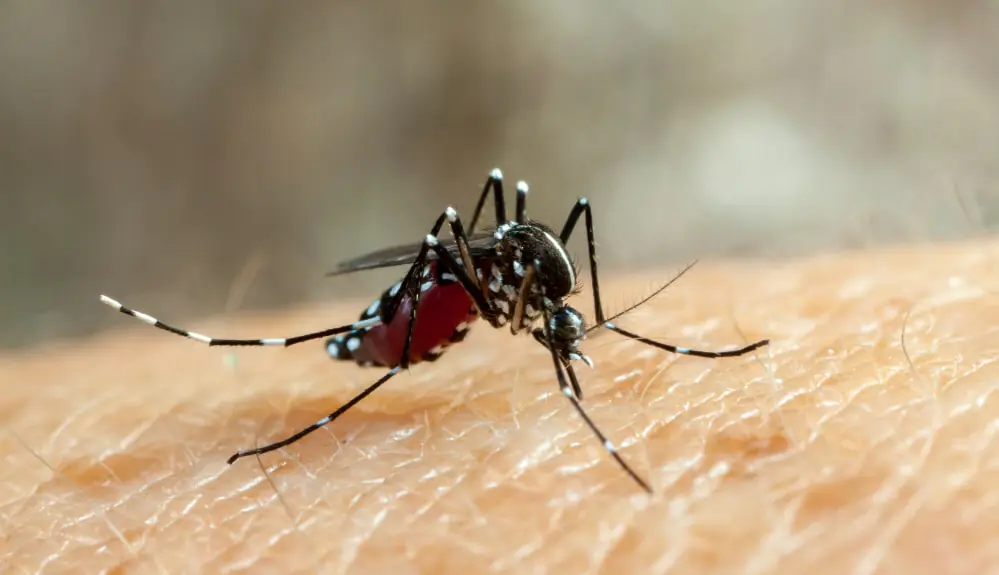
As summer starts and temperatures soar, we look forward to its pleasures – beach outings, barbecues, and hiking trips. But, with this comes summer biting bugs. It is often unseen yet always present – that can ruin our fun. Although encountering these bugs is inevitable, understanding and effectively managing them with seasonal urgent care can make summer more pleasant for all involved. Let’s look at this topic in-depth and learn more about unwanted bug bites in summer!
A Close Look at Summer Biting Bugs
Summer biting bugs include mosquitos, ticks, bees, and flies. Each species of bug behaves and bites for its reasons, helping us better predict their actions and protect ourselves. Some of them are:
Mosquitoes
Mosquito bites have long been the staple of summer fun. Bred in standing water and active at dusk and dawn, they feed off humans for protein consumption to produce eggs. It often appears as small reddish bumps that cause severe itching.
Ticks
These small creatures can be especially alarming in wooded areas as they carry Lyme disease and babesiosis, both potentially life-threatening diseases. Ticks attach themselves to your skin unnoticed until spots or symptoms appear – red spots or rashes are the telltale signs.
Bees and Wasps
Bees and wasps only sting when threatened. Their stings can be especially painful, causing sudden sharp, burning pain upon contact and often leaving red, swollen, itchy skin in its wake.
Flies
Flies such as sand flies, and horse flies can also bite. It can leave behind painful red bumps that take longer to heal than other insect bites.
Recognizing and Responding to Bug Bites
Different insects leave different kinds of marks, and knowing which kind of bug bite can help treat it appropriately. Some common bug bites that you may come across during summer include:
Mosquito Bites: Mosquito bites are often small, reddish-pink bumps that produce intense itching after being bitten. These usually appear shortly after an insect has bitten someone and may appear anywhere on their bodies.
Tick bites: A small red spot or rash may develop on the body after a tick bite. So, keep in mind that ticks transmit Lyme disease. Thus, timely medical care for any bug bite from a tick should always be sought if this is suspected of being the source.
Bee & Wasp Stings: Bee and wasp stings can be quite painful. It can result in an acute, sharp burning sensation followed by reddening, swelling, and itching at the contact site.
Fly bites: Bites from horse flies and sandflies can result in painful red bumps that take time to heal completely.
Clean the area when you suspect a bug bite with soap and water. Besides, applying an over-the-counter anti-itch cream or cold pack will be helpful as soon as you notice symptoms such as swelling and itching. If symptoms continue, consider urgent care services as necessary for their resolution.
Bug Bite Prevention: Be Prepared and Avoid Infestations
Taking proactive steps to prevent encounters with summer biting bugs could save you from uncomfortable or potentially serious bug bites. Here are some helpful tips:
Use Insect Repellent: Repellants such as DEET or picaridin can be extremely effective at keeping bugs away. Be sure to apply it directly on the skin and clothing for maximum protection.
Cover Up: If you plan on being in wooded or grassy areas, wear long-sleeved shirts, pants, socks, and a hat to reduce skin exposure and easily spot ticks. Lighter colors can help with this as well.
Avoid peak mosquito hours: If possible, try to remain inside during dusk and dawn when mosquitoes are most active. Dusk and dawn are peak mosquito hours. Reduce exposure during these times of the day.
Drain Standing Water: Mosquitoes thrive in standing water. So, ensure that any containers in your yard that may collect them, such as bird baths, flower pot saucers, or gutters, are emptied frequently. It will help to reduce mosquito breeding sites.
Regularly Check for Ticks: After any outdoor experience in woodland areas, especially woodland environments, everyone, including yourself, children, and pets, must be checked for ticks. Inspecting clothing is especially important as these tiny bugs can latch onto clothing to attach themselves and then bite later on.
Urgent Care For Bug Bites: When Should Medical Attention Be Seek out

Though most bug bites can be managed at home, certain situations require medical intervention. The following can result from bug bites:
- After 24 hours, redness, swelling, and pain appear significantly worse.
- Symptoms like fever, headaches, body aches or fatigue.
- Difficulty breathing and swelling of lips, tongue, or throat could indicate an allergic reaction.
- A tick bite followed by fever within several weeks may indicate an infection.
Your safety and well-being should always come first. Don’t hesitate to seek immediate medical care if a bug bite causes concern or uncertainty!
Enjoy the Sun, Not the Bug Bites
Awareness and prevention strategies are your best weapons regarding summer biting bugs. Though we may never completely avoid encountering them, we can reduce our chances of being bitten while being prepared for when that does happen.
Stay proactive this summer! If you need any urgent medical healthcare service, contact Advanced Urgent Care of Pasadena.

